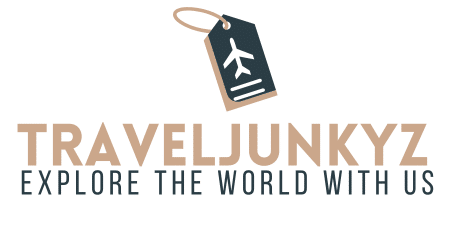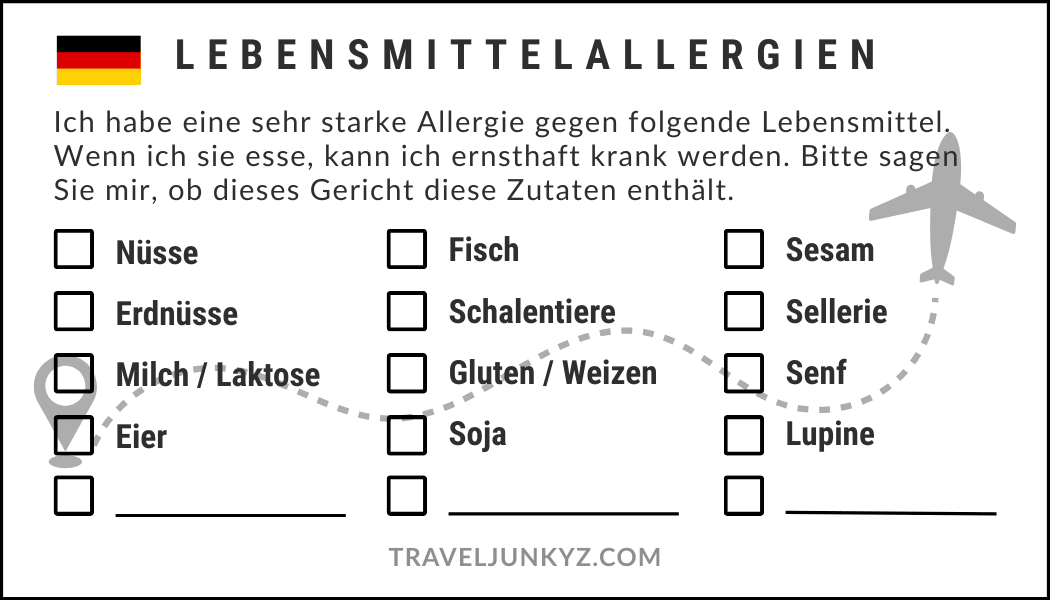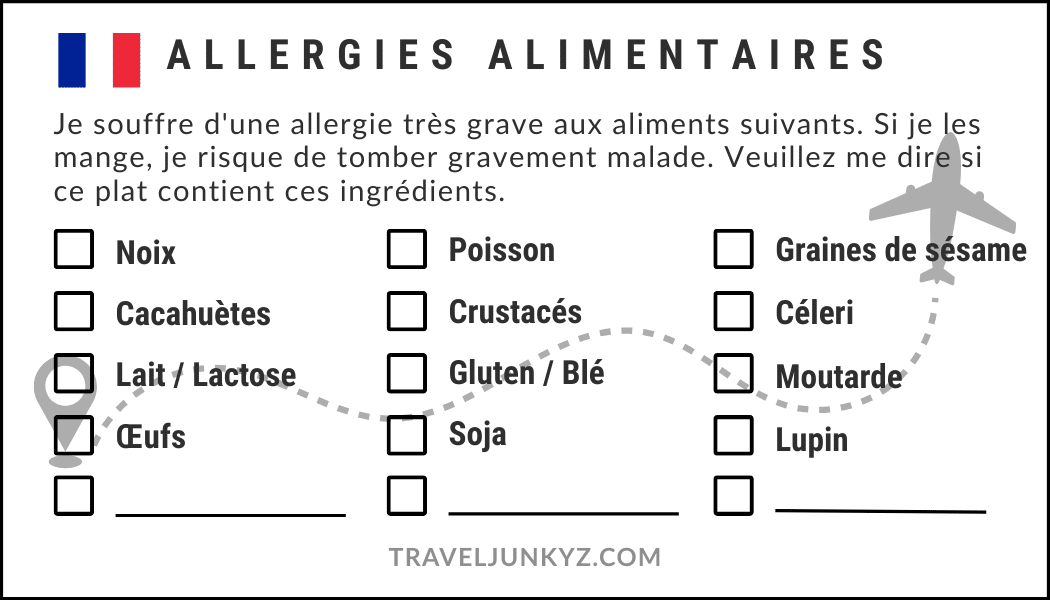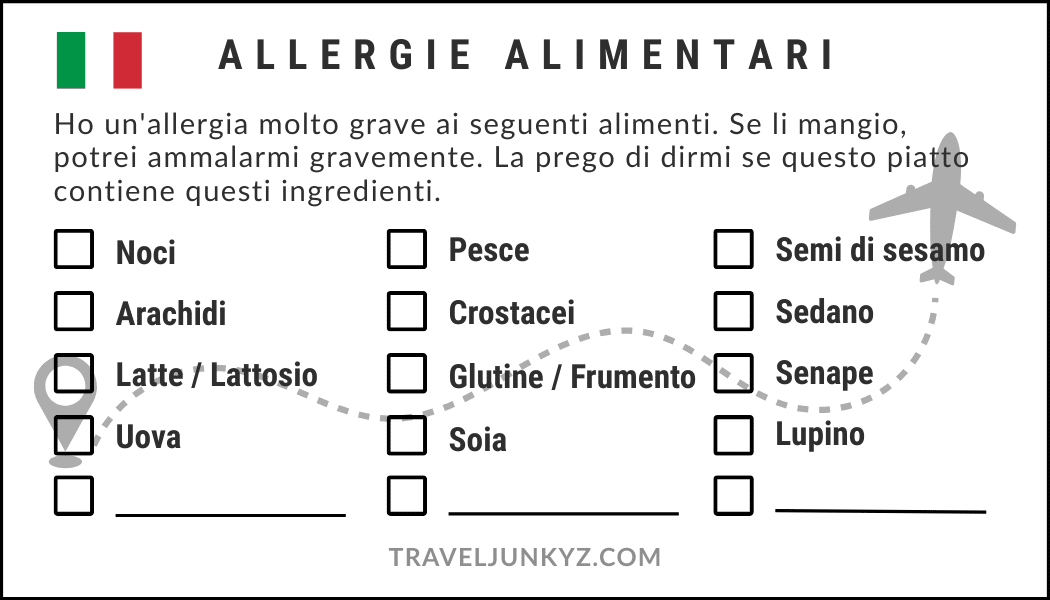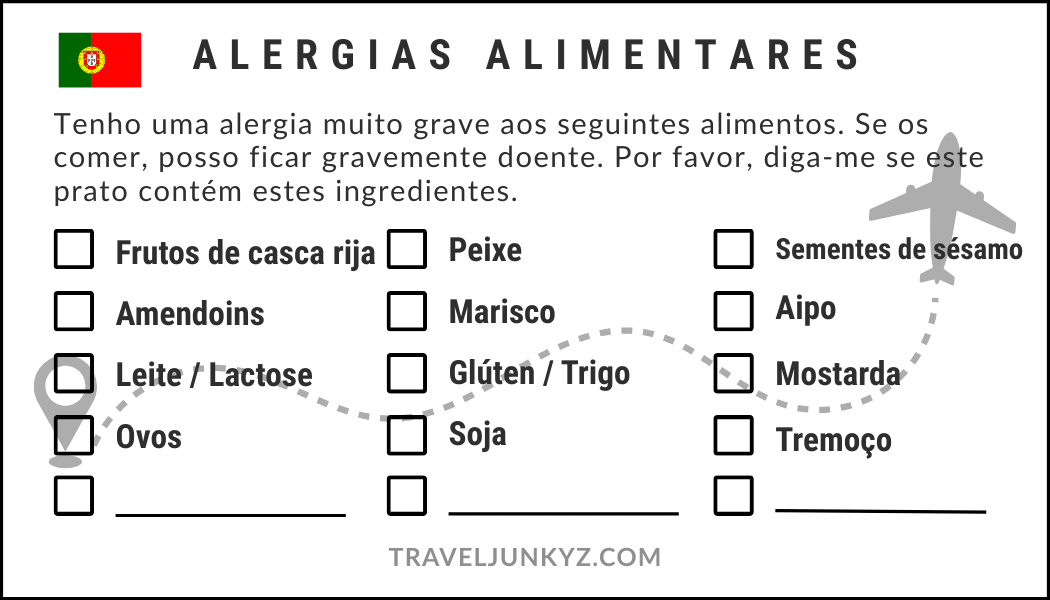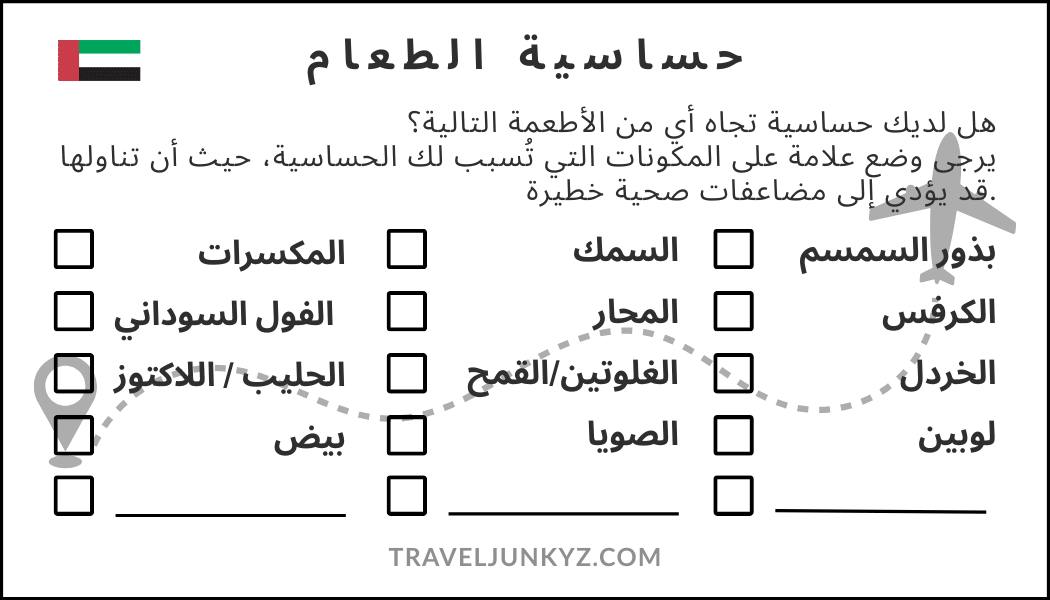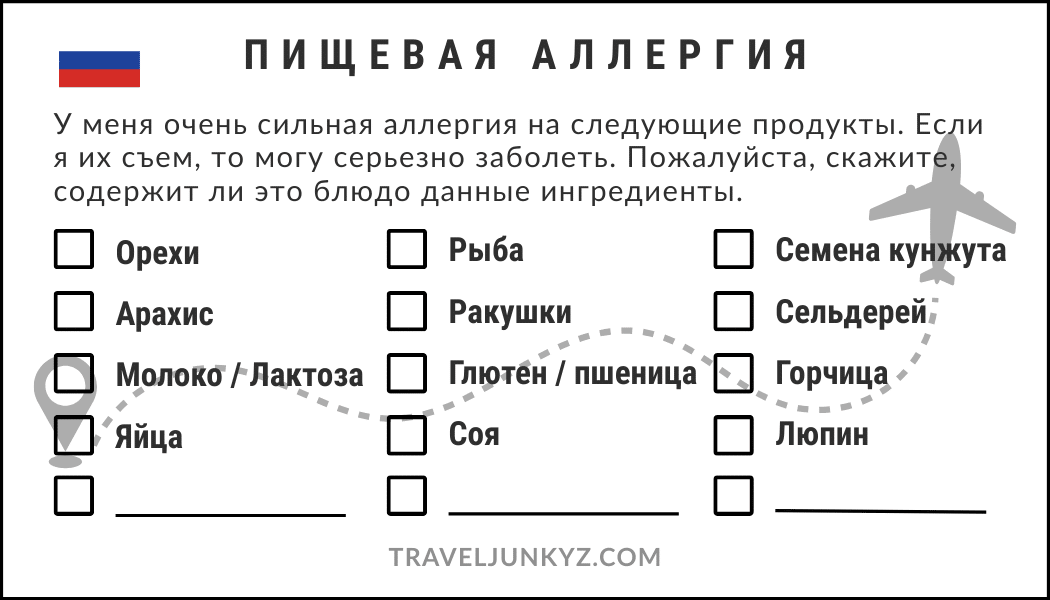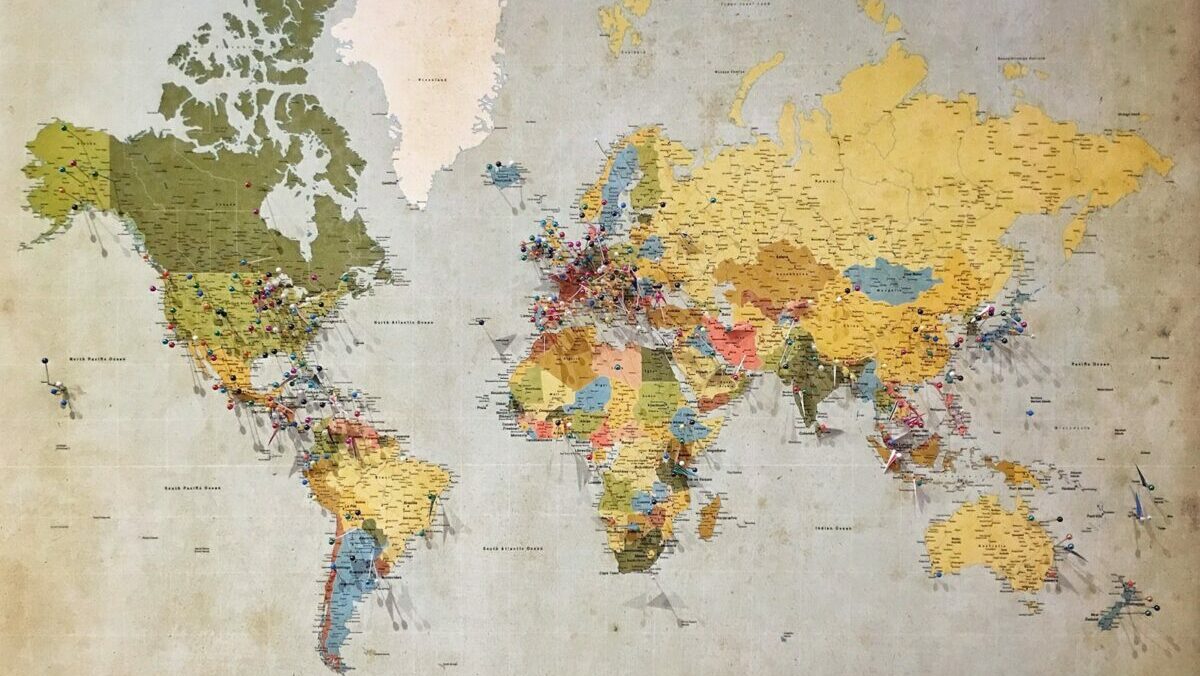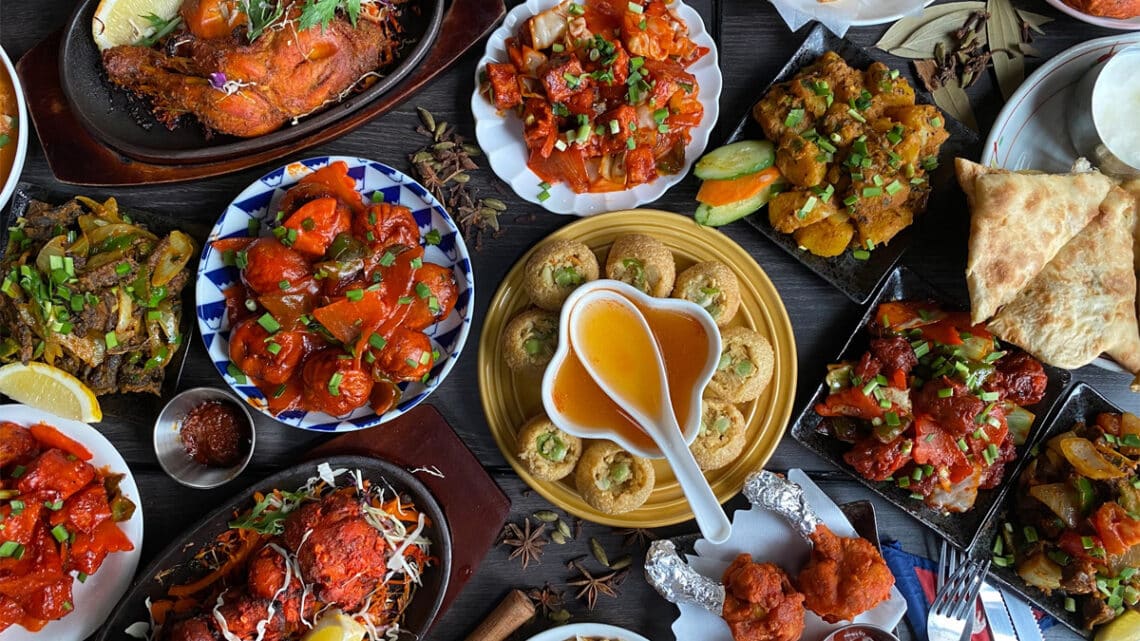
Food allergies on vacation: how to protect yourself
A relaxing vacation can quickly become dangerous for people with food allergies — especially if you are in a country where you don’t speak the language and where English is not a matter of course. But with the right preparation and a few practical tips, you can travel safely and enjoy your vacation experience despite allergies. In this article, we’ll show you what to look out for — including a clever solution in the form of allergy cards to download for free.
Challenges for allergy sufferers when traveling
For people with allergies, many uncertainties lurk abroad:
- Unfamiliar ingredients: National cuisines often use ingredients that you are not familiar with.
- Language problems: If the local language is not spoken and the staff speak little or no English, ordering becomes a risky situation.
- Lack of labeling: The same labeling requirements as in the EU do not apply everywhere.
- Street stalls & local markets: Information on ingredients is typically completely missing here.
Preparation before the trip
Medical documents & emergency medication
Always pack a current medical certificate and your emergency medication — including an adrenaline auto-injector if necessary. Make sure you have sufficient supplies and transportation requirements on the plane.
Prepare translations of allergies
Have your allergies professionally translated before you travel — either in written form or via app. This will help you to communicate quickly and clearly in an emergency.
Travel insurance with medical cover
Choose international health insurance that also covers emergencies caused by allergic reactions — including possible repatriation.
Choosing an allergy-friendly destination
Some countries are better known for their high awareness of food allergies — such as the Scandinavian countries, the UK, Canada and Australia.
Ad
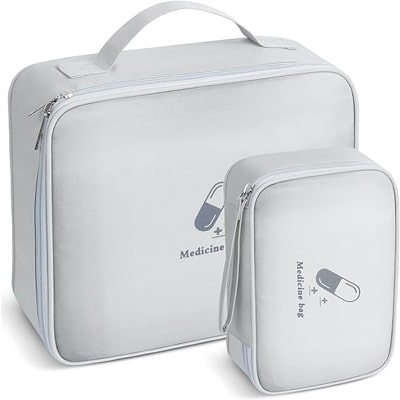
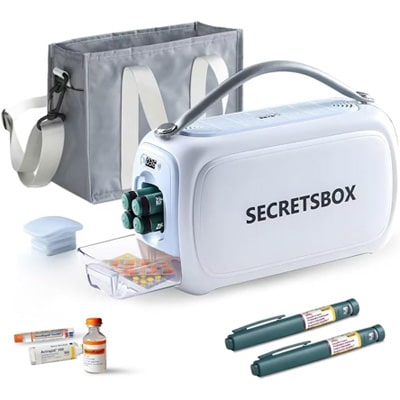
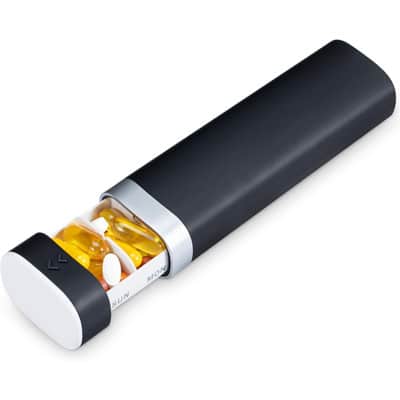
Eating out abroad — what to look out for?
Communication in the restaurant
A clear understanding between you and the staff is essential. If the restaurant staff don’t speak English, the only thing that will help is a translation of your allergies — this is where the allergy cards come into play (more on this in a moment).
Labeled menus — what is regulated by law?
In the EU, allergens must be declared on menus or by information on request Labeled menus — what is regulated by law? In the USA, the responsibility often lies with the customer. In Asia, Africa, or South America, on the other hand, there are hardly any legal regulations — the rule there is: double check and if you are unsure, do without.
Avoid food if there is uncertainty
If it is not 100% clear whether a dish is safe, order something else or do without. Your health has top priority.
What are allergy cards?
Allergy cards are small cards on which your allergies are clearly stated in the local language — ideal for restaurants, hotels, and markets.
How do they work on the move?
You show the card to the staff — they can see at a glance which ingredients are dangerous for you. Without misunderstandings or translation errors.
Advantages — clear communication at a glance
- No language barrier
- High comprehensibility through simple formulations
- Compact, practical & quickly ready for use
Free download of your individual allergy card
We provide you with free allergy cards in various languages — it’s easy:
- Print it out & take it with you in your wallet or
- Save as an image on the smartphone
Select your desired translation
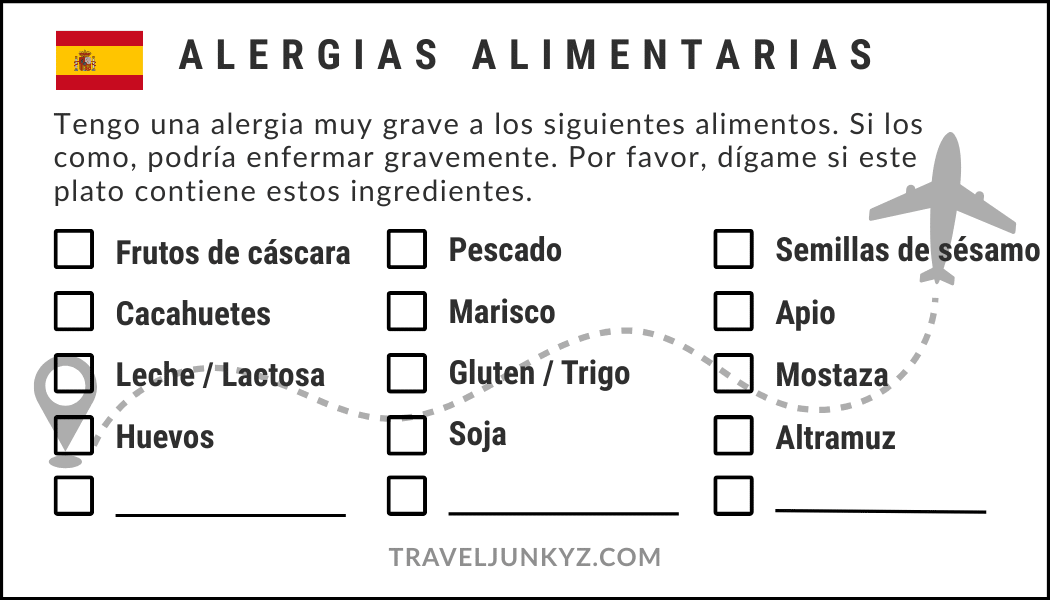
Spanish
Note: This article is also available in German.



